Read Works
Read Works: Lesson 2: Using Pictures to Support the Main Idea
[Free Registration/Login Required] Students will peruse the pictures of an informational text to predict the topic of the book.
Wisconsin Response to Intervention Center
Wisconsin Rt I Center: Reading Resources [Pdf]
This site provides a collection of reading strategy teaching resources. Strategies are arranged according to the ELA Common Core Curriculum Standards and grade level bands.
Texas Education Agency
Texas Gateway: Reading Instruction: Comprehension Instruction
A major goal of reading comprehension is to help students develop the knowledge, skills, and experiences needed to become competent and enthusiastic readers. Download the Comprehension Instruction booklet, which details important ideas...
Better Lesson
Better Lesson: Miss Nelson Is Missing Key Details
Where did Miss Nelson go? We look at the key details in the text to determine what is happening throughout the story. Students will locate and record key details about story elements (characters, setting, problem, solution, and theme) in...
Better Lesson
Better Lesson: Plant Life Cycle Introduction
Sequencing is an important skill for kindergarten students. This lesson uses nonfiction texts to allow students to make a real-life connection to the skill of sequencing and learn about the plant cycle at the same time! Included are...
Better Lesson
Better Lesson: Conferencing
Editing is a step that can often be overlooked in Kindergarten; however, it is crucial that our young scholars understand how and why to go back and fix their writing! In this lesson, students will take suggestions from the teacher and...
CPALMS
Cpalms: Understanding Key Details by Using Pancakes for Breakfast
[Free Registration/Login Required] For this lesson, students will be read Pancakes for Breakfast by Tomie DePaola in order to understand and describe people, places, things and events in a text. They will create a book by drawing or...
Better Lesson
Better Lesson: Guess My Solid
Descriptive details are used as learners develop a guessing game poster for others to try and guess their chosen solid. Included in this detailed lesson plan are videos, samples of student work, a printable worksheet, an assessment...
Better Lesson
Better Lesson: Many Parts
Preparation for reading complex informational texts starts in K and First grade. Knowing the features of the genre, and how to navigate through it is one of the necessary stepping stones. This instructional activity introduces the...
Better Lesson
Better Lesson: Writing Our Sloppy Copies and Peer Editing
Students will write a sloppy copy and help a peer to edit their writing. They will use a kid-friendly checklist (included)to help each other find their mistakes. Videos of students engaged in the lesson are provided, along with a...
CPALMS
Cpalms: What Do You Do With a Tail Like This?
[Free Registration/Login Required] In this instructional activity, students will use What Do You Do With A Tail Like This? by Steve Jenkins and Robin Page to identify the main topic and key details using the illustrations and text....
Better Lesson
Better Lesson: Speaking and Listening: Collaborative Conversations
Students will partner read The Kite, by Alma Flor Ada. Then work together in small collaborative groups to describe the character of the mother, the children, or the kitten. Included in this lesson are video demonstrations, printable...
Reading Rockets
Reading Rockets: Reading Basics: Comprehension
Provides articles, parent tips, research briefs, and a video on how to teach reading comprehension.
Reading Rockets
Reading Rockets: Using Collaborative Strategic Reading
In this article, the Collaborative Strategic Reading (CSR) technique is explained, along with research to support the use. The technique teaches students to use comprehension strategies, while working cooperatively, as they engage in the...
CPALMS
Cpalms: Giraffes and Zebras Oh My!
[Free Registration/Login Required] For this lesson plan, students will be able to ask and answer questions about key details in a text. Additionally, students will also be able to identify, compare, and contrast characteristics between...
Other
Smekens Educational Solutions: Expose K 2 Readers to Annotation Strategies
This article discusses how to begin teaching students in K-2 to record their ideas about text using highlighters, colored pens, large graphic organizers, and sticky notes. Students can retell a story with a storyboard, use a web to find...
PBS
Pbs Learning Media: Literacy
Multiple resources such as videos and interactive games from Sesame Street that can be used to build literacy skills.
Michigan State University
Michigan State University: Intervention for Reading: Group Story Mapping
This intervention, which is based on Schema Theory, emphasizes linking previous knowledge structures (schemata) with reading materials. A pre-reading technique (see "My Story Map") provides a framework that directs students' attention to...
Michigan State University
Michigan State University: Intervention for Reading: Summarization Strategy
Improve understanding of expository materials by summarizing the main ideas. The summarization strategy helps young scholars recall the main ideas and specific facts of materials they read. There are five rules for writing summaries.
Scholastic
Scholastic: Listen and Read: Pediatrician
Listen and read along as a pediatrician describes how she takes care of children in this interactive book for early learners.
Curated OER
Mc Graw Hill: Part 1: Reading Literature
Learn how asking and answering questions can help readers understand literature better. Site includes a model and an example of how to use this system.
Curated OER
Mc Graw Hill: Key Ideas and Details: Retell Stories
Read a passage to discover how to retell a story then practice what you've learned.
Family Education
Family Education: Fifteen Minute Reading Activities
What can you do with your child in fifteen minutes to improve their reading skills? This site has a list of reading activities.
Florida Center for Reading Research
Florida Center for Reading Research: Expository Fact Strip [Pdf]
A lesson plan in which students read a text and identify the topic and four facts presented within the text. Materials are included.


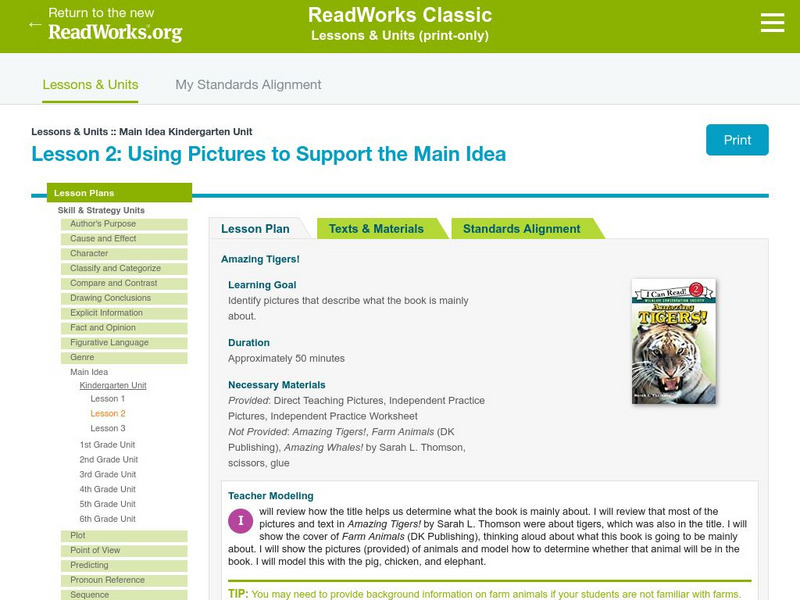
![Wisconsin Rt I Center: Reading Resources [Pdf] Professional Doc Wisconsin Rt I Center: Reading Resources [Pdf] Professional Doc](https://content.lessonplanet.com/knovation/original/366736-5cd279998cc3cbb7d56ecae193218c44.jpg?1661510893)



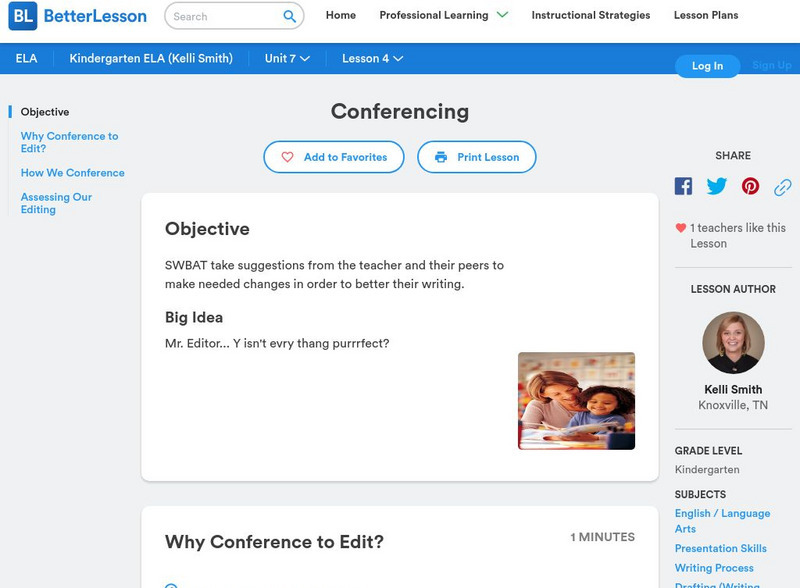
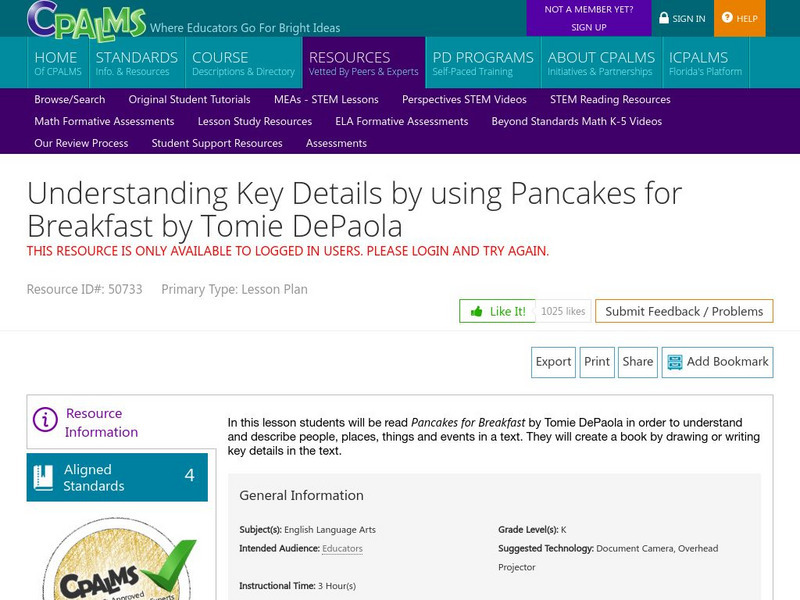

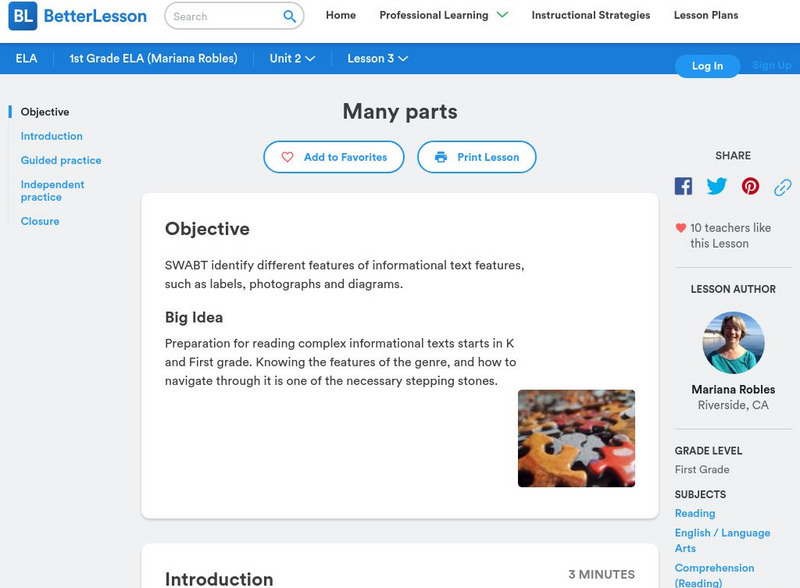
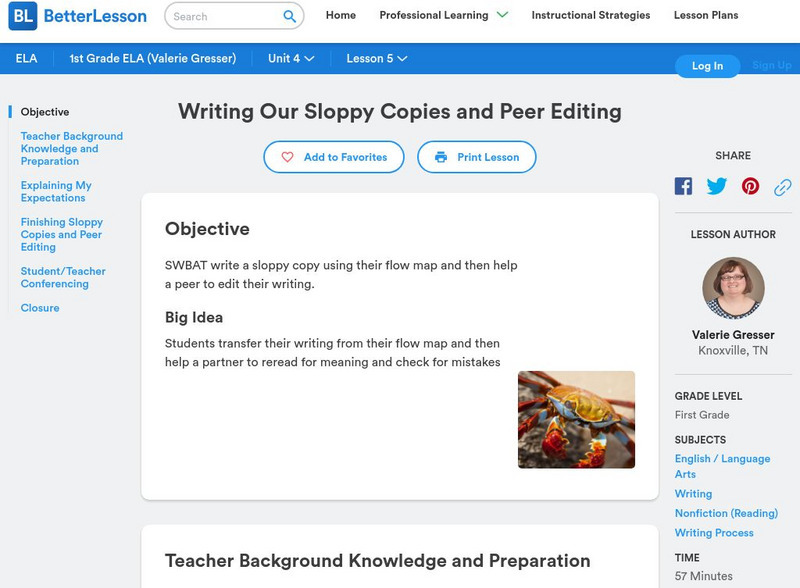





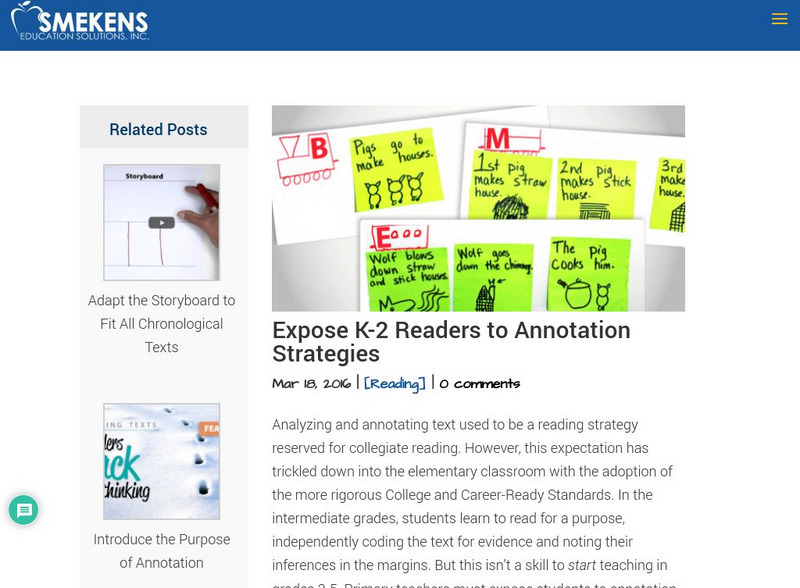



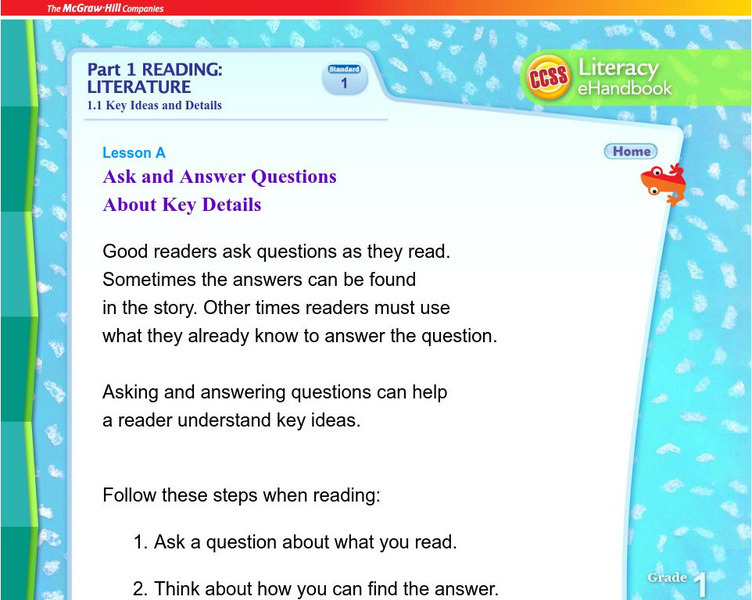

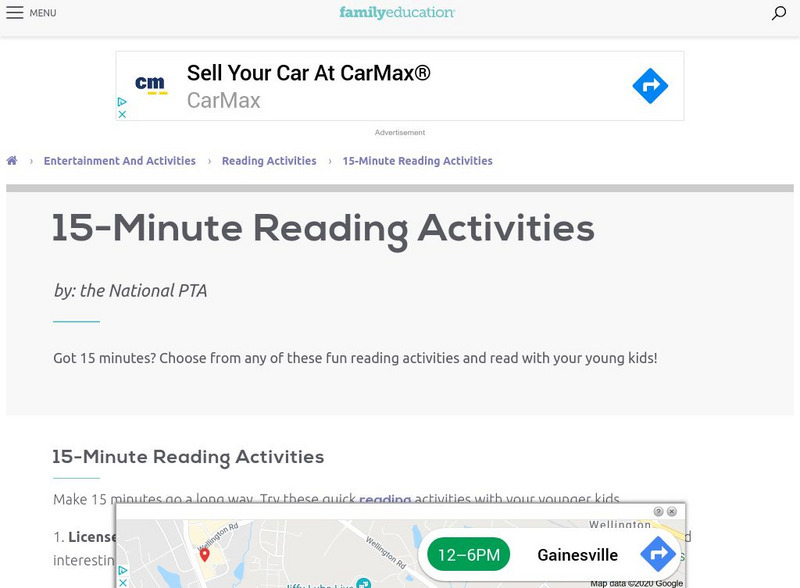
![Florida Center for Reading Research: Expository Fact Strip [Pdf] Lesson Plan Florida Center for Reading Research: Expository Fact Strip [Pdf] Lesson Plan](https://content.lessonplanet.com/knovation/original/101726-6e9433c83ac2e2bbad9c1c7411098251.jpg?1661786954)